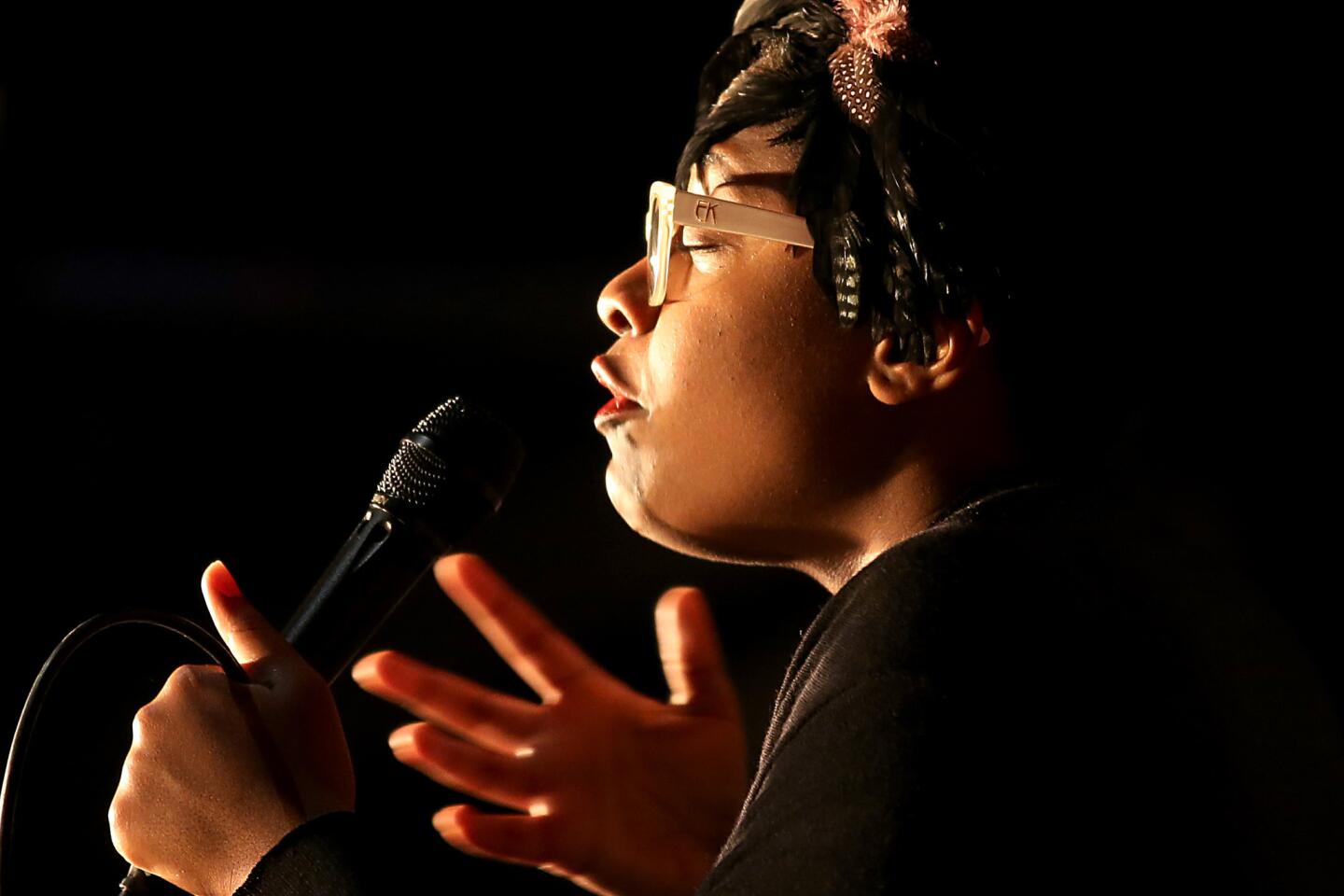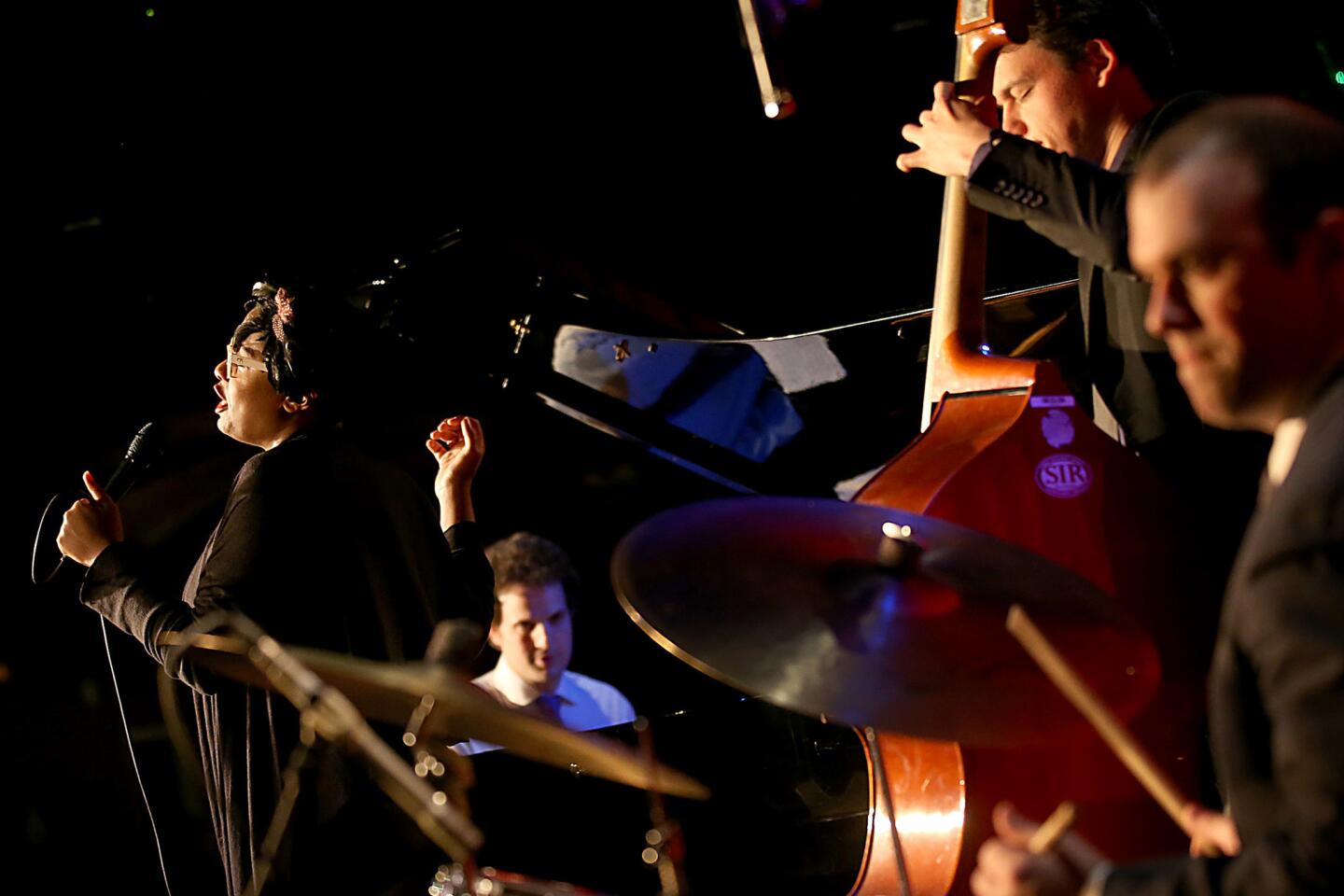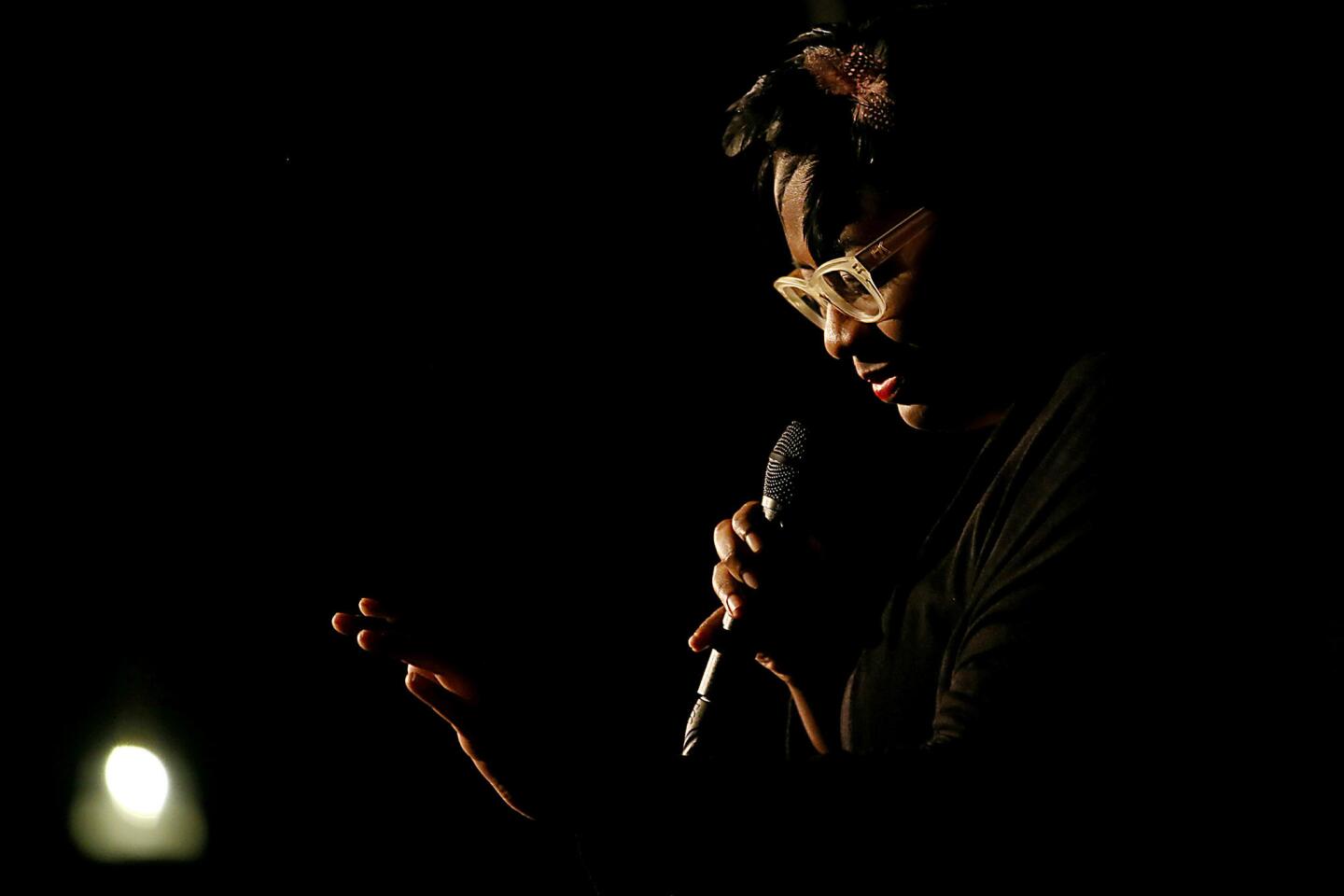Review: Cecile McLorin Salvant looks ahead at Catalina Bar & Grill
One of the finest sleights of hand in music is to write a song that sounds like a long-lost standard. Equally impressive, however, is the rare ability to perform a classic song and make it sound utterly new.
Those are just two skills at the disposal of rising star vocalist CĂŠcile McLorin Salvant, whose Grammy-nominated sophomore album, âWomanChild,â was one of the sharpest, most magnetic releases of 2013. She wound up losing out to another breakout jazz vocal star, Gregory Porter, but there was no less of a buzz filling the air Monday night when McLorin Salvant was making her L.A. debut at a crowded Catalina Bar & Grill.
âSheâs only 24,â one woman at the clubâs many banquet tables said with wonderment before the show. She added with a laugh, âLetâs just hope she sticks with jazz.â
While thereâs a certain protectiveness among some jazz devotees thatâs akin to that of small-market baseball team fans who distrust big-money clubs looking for free agents, McLorin Salvant is not exactly a purist, either. She comes from a classical background, and her ear tilts to older, less familiar ground, something underscored by a charismatic performance of âNobody,â a song from 1905 by vaudeville-era black comic Bert Williams.
Dressed in a short black dress with a feathered headband over her close-cut hair, McLorin Salvant nimbly moved through the songâs theatrical blues, playfully dipping into the chorus with an almost Paul Robeson-like purr. While her voice was immediately striking for her age, so was her assurance as she played with the songâs silences just as comfortably as its melody.
Still, McLorin Salvant isnât shy about approaching the jazz canon either, delivering an acrobatic take on Abbey Lincolnâs âLaugh, Clown, Laughâ and an elastic version of the Broadway classic âIf This Isnât Love,â which was previously performed by Sarah Vaughan. Cole Porter, long a favorite for jazz vocalists, was also revisited with a double-header of âI Get a Kick Out of Youâ and âSo in Love,â which at one point found McLorin Salvant dropping to a husky, almost didgeridoo-like tone atop a stark rhythmic backdrop.
INTERACTIVE: Discover songs of L.A.
Lincoln was another touchstone on McLorin Salvantâs lone original piece, her albumâs dramatic title track. McLorin Salvant introduced the song as âthe first thing I wrote I didnât completely hate,â and her voice curled around a clockwork bassline, acrobatically twisting up and down the register as the song picked up steam. A gleeful take on Bessie Smithâs âYou Got to Give Me Someâ was another high point, showcasing McLorin Salvantâs coy sense of humor as she coursed through the songâs array of bawdy double-entendres, reveling in the frank, empowered sexuality that belies the songâs late â20s roots.
Pianist Ehud Asherie was a game foil for McLorin Salvant, though the evening would have benefited from the bolder ventures of her usual bandmate Aaron Diehl. The classic âJohn Henryâ was missing the percussive touches from Diehl on record, but the arrangement retained a spare power as McLorin Salvant squared off with the driving rhythm section to a striking finish with the microphone at her waist, which allowed her bare voice to arc over the crowd with the intimacy of an old 78 record.
McLorin Salvant may not adhere to the strictest boundaries of jazz now or moving forward, but the question may ultimately be: Can jazz keep up with her?
ALSO:
Spiritualized reaches outer limits at new Ace Hotel
Album review: Lydia Lovelessâ brazen âSomewhere Elseâ
Grammys 2014: Who will be this yearâs Esperanza Spalding?
Twitter: @chrisbarton
More to Read
The biggest entertainment stories
Get our big stories about Hollywood, film, television, music, arts, culture and more right in your inbox as soon as they publish.
You may occasionally receive promotional content from the Los Angeles Times.















